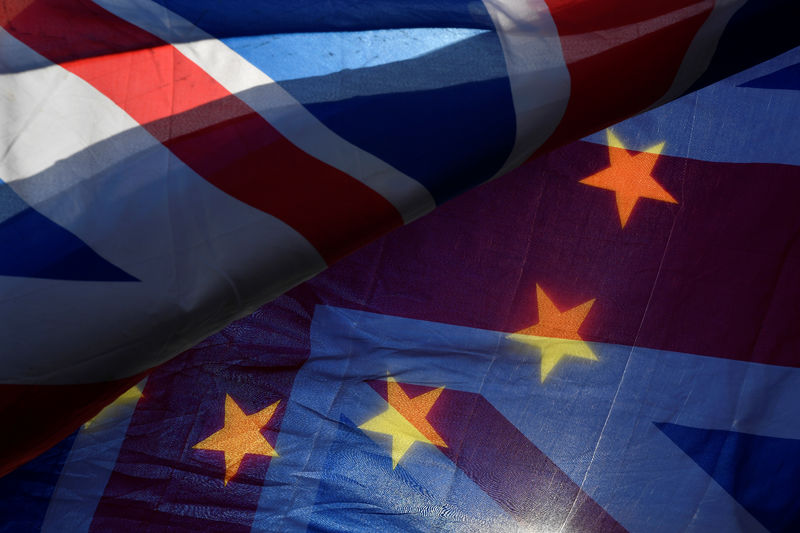By Philip Blenkinsop and Robin Emmott
BRUSSELS (Reuters) - The European Union set out short-term measures on Wednesday to limit disruption to air traffic, financial services and trade if Britain left the bloc without a deal next March.
However, in a sign that a no-deal Brexit would not be business as usual, there would be new checks to currently frictionless trade, which could lead to tail-backs near ports and delays to deliveries.
Every shipment of live animals or animal products from Britain would face controls at EU borders and Britons would lose the right to travel with their pets using EU pet passports.
The European Union would only allow British trucks to carry goods into the bloc, assuming also Britain allowed EU trucks in, until the end of next year.
The European Commission, which presented the plans, also warned of higher charges for using credit or debit cards because EU rules limiting such fees would no longer apply.
Asked if the European Union was offering Britain a relatively attractive no-deal option, Commission Vice President Valdis Dombrovskis told a news conference the measures were simply designed to limit disruption.
Dombrovskis said that the best way to avoid harming the British economy would be for Britain to stay in the European Union. In the case of Brexit, the withdrawal agreement agreed with the British government was better than no deal.
"In the case of no deal, doing some preparation to limit damage is better than not doing any preparation at all," he said.
The Commission's measures cover transport, financial services, customs and border checks, taxation and climate change and will need to be backed by the European Parliament and the 27 countries remaining in the EU.
The EU executive proposed allowing British airlines to fly to and from EU airports for 12 months, assuming Britain offered equivalent rights to EU airlines.
The bloc would also recognise UK clearing houses for financial derivatives for a year.
The Commission, which is coordinating the European Union's response to Brexit, also called on the 27 other EU governments to allow British nationals living in their countries to stay and work from March 29, the day Britain is due to leave.

The Commission was keen to stress that the measures were limited in time. It also said that the contingency measures would not apply to British territory Gibraltar, which has an active financial services sector.